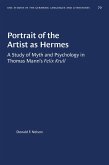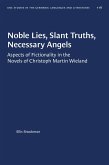This study of German fiction about America in the nineteenth century concentrates in detail on three writers: Charles Sealsfield (Carl Postl, 1793-1864), an escaped Moravian monk who came to New Orleans in 1823 and wrote the first major German novels about the United States; Friedrich Gerstäcker (1816-1872), who, among his many experiences in America as a young man, lived as a backwoodsman in Arkansas and who later produced a large body of fiction, travel reportage, and emigration advice; and Karl May (1842-1912), who, though he knew nothing about America beyond what he could read in books, wrote famous adventure stories set in an imaginary West and became the best-selling writer in the German language.
Sammons provides biographies of the authors and discusses how each differs in their mimetic and ideological approach. He pays particular attention to how the authors address issues of race, gender and politics in the United States. Sammons interweaves his discussion of these three writers with excurses into the emergence of the German Western and anti-Americanism in German fiction.
Sammons provides biographies of the authors and discusses how each differs in their mimetic and ideological approach. He pays particular attention to how the authors address issues of race, gender and politics in the United States. Sammons interweaves his discussion of these three writers with excurses into the emergence of the German Western and anti-Americanism in German fiction.
Dieser Download kann aus rechtlichen Gründen nur mit Rechnungsadresse in A, D ausgeliefert werden.









